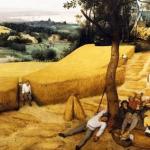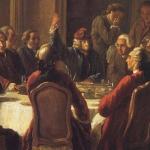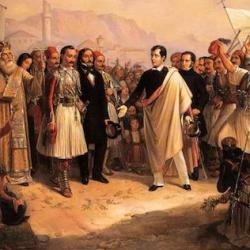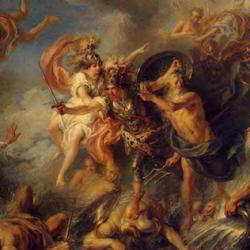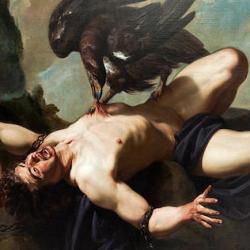In Literacy and Orality in Ancient Greece, Rosalind Thomas surveys the current state of Homeric studies. In the background is the Millman-Lord thesis that the epics are the product of oral improvisation. Thomas discerns two schools:
“On the one hand, the formulaic theory of Parry and Lord is being refined and extended to other oral poetry (based mainly in America, this trend in scholarship amounts to a school of thought adhering to ‘the oral theory of composition’); formulae and themes are the focus, poetic individuality denied. On the other hand, after a period in which the Parry thesis was absorbed and generally accepted, there has been what might be called an aesthetic reaction, and scholars have returned again to the literary qualities of Homer.”
Strict adherents to the oral poetry thesis downplay the creative input of the epic poet, but Thomas makes the obvious point: “it is hard to believe that the Iliad with its twenty-four books, over-arching structure binding the whole together, and ability to transcend the basic tale of Achilles’ wrath, could really have been the result of on-the-spot improvisation alone. The overall coherence must surely indicate that, however traditional the language and basic story, the Iliad bears the mark of a master poet at the end of a long line, a so-called ‘monumental poet.’ And this reintroduces the possibility of individual creativity and innovation within the tradition, not to mention the strong possibility that the poet worked extensively on the poem.”
One of the problems here is that studies of Hellenic orality don’t interact with studies of the literary features of Homer’s poems: “there is a wide gulf between the literary study of Homer and the oral-formulaic school. The literary study of Homer tends merely to chip away at the oral-formulaic theory or neglect it altogether. . . . On the other hand, even though Parry and Lord acknowledged the superior quality of Homer’s poetry, their followers have not attended to the subtleties of language and thought pointed out by other Homeric studies, let alone tried to explain them in oral terms. The result is deadlock and mutual disregard.”
Literary studies of Homer pose a challenge to oral theorists, but also to literary scholars: “we should be able to explain how a poet of genius might work within an oral tradition and produce a work of art (perhaps like the Iliad). The American oral-formulaic school has so far failed to do this. But nor can we dismiss the oral theory entirely, since the Iliad and Odyssey so obviously do share some features of other oral poetry and they were composed when writing was barely known, if at all.”
A “balanced, rounded view,” she argues “needs to appreciate not simply oral poetry and ‘orality,’ or writing and literacy, but both.”

